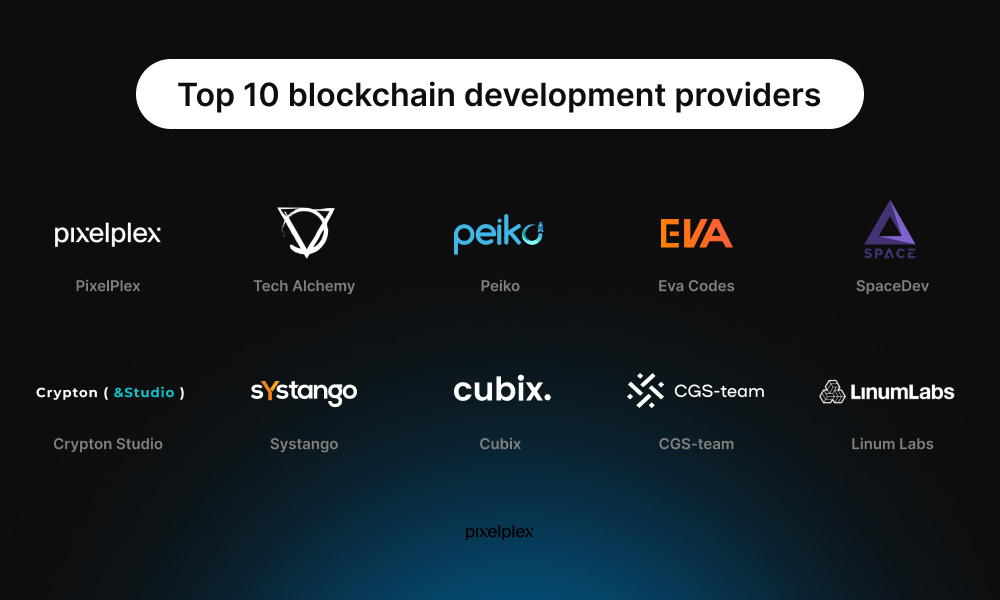/industry-wired/media/post_attachments/wp-content/uploads/2024/09/Top-Blockchain-Startups-to-Watch-in-2024.jpg)
Introduction
Overview of Blockchain Technology
Blockchain technology has emerged as a revolutionary force across various industries, transforming how transactions are conducted and data is managed. At its core, a blockchain is a decentralized ledger that records transactions across multiple computers, ensuring that the recorded data is secure, immutable, and transparent.
This technology operates on principles of consensus, where multiple participants validate transactions, reducing the likelihood of fraud. Imagine a shared notebook where everyone has a copy, and any changes require agreement from the majority. This decentralized model not only enhances security but also promotes trust among parties involved.
Key features of blockchain technology include:
- Decentralization: Eliminates the need for intermediaries like banks or governments.
- Immutability: Once recorded, data cannot easily be altered, ensuring a trustful environment.
- Transparency: All transactions are visible to participants, reducing disputes.
Importance of Emerging Blockchain Startups
As technology evolves, emerging blockchain startups are pivotal in tapping the potential of blockchain. They introduce innovative solutions that address existing shortcomings in various sectors, such as finance, supply chain, and healthcare. These startups often serve as the driving force behind the adoption of blockchain technology, bringing fresh ideas and creating new markets.
For instance, consider a startup that utilizes blockchain for secure voting systems. By ensuring that votes are tamper-proof and easily verifiable, such innovations promote increased participation in democratic processes. Similarly, startups focused on supply chain transparency can reduce fraud and enhance product traceability—an essential factor in today’s marketplace.
The significance of these emerging startups cannot be overstated:
- Driving Innovation: They constantly push the boundaries of what blockchain can achieve.
- Creating Jobs: The rise of blockchain can lead to new roles in tech, operations, and compliance.
- Enhancing Competition: With varied offerings, they challenge established players, leading to better products and services.
In conclusion, as startups harness the power of blockchain technology, they will undoubtedly play a crucial role in shaping an interconnected and transparent future, making this an opportune moment for investors and tech enthusiasts alike.

Criteria for Selection
Innovation and Disruption Potential
When evaluating emerging blockchain startups, one of the foremost criteria to consider is their innovation and disruption potential. In a rapidly evolving landscape, the ability to introduce novel solutions or redefine existing processes can differentiate a startup from its competitors.
Take, for example, a blockchain-based startup focusing on identity verification. Traditional methods often involve cumbersome processes and third-party intermediaries. By leveraging blockchain, this startup can streamline the verification process, enhance user privacy, and reduce fraud—all in a way that hadn’t been previously possible.
Key indicators of a startup’s innovation potential include:
- Unique Value Proposition: What problem does the startup solve in a way that’s never been done before?
- Technology Adoption: Is the startup using blockchain in a revolutionary way, or merely as a buzzword?
- User Experience: Does their product enhance the user experience through simplification or transparency?
Market Viability and Competitive Advantage
The next important criterion is the market viability and competitive advantage of the startup. Even the most brilliant ideas can fail if they don’t address a significant market need or if they can’t outperform existing solutions.
As tech enthusiasts at TECHFACK often highlight, successful startups usually possess clear market strategies and robust business models. Characteristics to assess include:
- Target Market Size: Is the startup addressing a growing market with ample demand?
- Revenue Model: How does the startup plan to generate income? Subscription model? Transaction fees?
- Competitor Landscape: Who are the primary competitors, and how does the startup differentiate itself from them?
For instance, consider a blockchain supply chain startup that provides real-time tracking and verification of goods. It not only targets a billion-dollar market but also offers a solution that emphasizes transparency—a major advantage over traditional methods that may lack clarity.
In conclusion, assessing innovation and market viability are crucial steps in identifying promising blockchain startups. Startups that combine groundbreaking technology with a clear market fit will be the frontrunners in this transformative space.

Top Emerging Blockchain Startups
Startup 1: Company Overview and Products
One of the standout blockchain startups making waves is ChainGuardians. This innovative company merges blockchain with gaming, creating a unique platform where players can purchase, sell, and stake digital assets, all backed by non-fungible tokens (NFTs).
- Core Offering: Their flagship product is a gamified platform that allows players to earn rewards while playing games through the use of blockchain technology.
- Unique Features:
- NFT-based characters and items
- Play-to-earn mechanics enhancing user engagement
- Robust community governance, giving players a say in future developments
ChainGuardians exemplifies how gaming and blockchain can intertwine to create value, attracting not only gamers but also blockchain enthusiasts excited about the digital asset economy.
Startup 2: Company Overview and Products
Next up is DataVault, a startup dedicated to transforming the data security landscape. They leverage blockchain to provide secure data storage solutions that ensure user privacy while granting seamless access.
- Core Offering: DataVault offers a decentralized platform where users can store sensitive information, with encryption ensuring the data is not tampered with.
- Unique Features:
- Zero-knowledge proof technology, allowing users to verify data without revealing it
- Integration with existing cloud storage services for enhanced usability
- User-centric control, enabling individuals to share data securely with select parties
With growing concerns around data breaches, DataVault’s approach addresses a critical need in today’s data-driven environment, empowering users to take charge of their personal information.
Startup 3: Company Overview and Products
Lastly, we have SupplyChainSync, a startup focused on enhancing supply chain transparency. Utilizing blockchain, they aim to provide real-time tracking of products from origin to end-user.
- Core Offering: Their platform allows stakeholders in a supply chain to monitor every step of a product’s journey, ensuring authenticity and reducing fraud.
- Unique Features:
- Real-time updates available to all stakeholders
- Comprehensive analytics for supply chain optimization
- Dynamic dashboards showcasing product timelines and locations
SupplyChainSync is transforming how businesses think about supply chains, turning a traditionally opaque process into a transparent and accountable one.
In conclusion, these emerging blockchain startups—ChainGuardians, DataVault, and SupplyChainSync—demonstrate the diverse applications of blockchain technology across gaming, data security, and supply chain management. Each of them is carving out their niche, underlining the importance of innovation in driving the blockchain revolution forward.

Investment Opportunities
Funding Trends in Blockchain Startups
As the blockchain ecosystem continues to expand, the funding landscape for startups in this sector is evolving rapidly. Investors are increasingly recognizing the potential of blockchain technology, leading to a surge in capital influx into emerging startups. At TECHFACK, we’ve observed several notable trends shaping this investment scene:
- Increased Venture Capital Interest: Venture capital firms are flocking to blockchain startups, eager to get in on the ground floor before the next big innovation.
- Diversity in Funding Sources: Beyond traditional venture capital, startups are tapping into various funding avenues, including ICOs (Initial Coin Offerings), seed funding, and crowdfunding platforms.
- Focus on DeFi and NFTs: Startups in decentralized finance (DeFi) and non-fungible tokens (NFTs) are particularly attracting attention, with substantial funding rounds often exceeding millions of dollars.
These trends highlight how the market’s appetite for blockchain solutions is growing. In 2023 alone, reports indicated that blockchain startups collectively raised over $30 billion, a testament to their potential.
Risks and Rewards of Investing in Emerging Startups
While the investment potential is alluring, it’s essential to navigate the landscape with caution. Like any investment, putting money into emerging blockchain startups comes with its share of risks and rewards.
- Rewards:
- High Return Potential: Early investment in a blockchain startup can yield significant returns, especially if the company successfully scales.
- Diversified Portfolio: Investing in blockchain offers an opportunity to diversify one’s portfolio with innovative technologies that can disrupt multiple industries.
- Involvement in Cutting-Edge Tech: Investors can take pride in supporting groundbreaking solutions that may pave the way for future advancements.
- Risks:
- Market Volatility: The blockchain market is notoriously volatile, meaning that investments can fluctuate wildly in value.
- Regulatory Uncertainty: The landscape is still developing, and prospective regulations could impact startup operations and profitability.
- Competition: The sheer number of blockchain startups means that not all will succeed, posing a risk to those who choose to invest.
In summary, while investment opportunities in blockchain startups abound, they come with inherent risks. Armed with thorough research and an understanding of the market dynamics, investors can make informed decisions, positioning themselves on the right side of the blockchain revolution.
Regulatory Environment
Impact of Regulations on Blockchain Startups
As the blockchain space matures, regulatory frameworks are emerging to govern this fast-paced industry. The impact of regulations on blockchain startups is intricate and multifaceted. On one hand, a clear regulatory environment can foster innovation and growth; on the other, overly stringent regulations can stifle progress.
For example, when countries like Malta and Singapore embraced blockchain-friendly regulations, they attracted a surge of startups looking to establish operations without fear of heavy penalties. These environments create opportunities for growth and innovation, which in turn boost job creation and economic development.
Consider these key impacts of regulations on blockchain startups:
- Legitimacy: Clear regulations can enhance the credibility of blockchain startups in the eyes of consumers and businesses alike.
- Market Entry Barriers: Startups may face challenges when entering new markets due to varying regulations across jurisdictions, affecting their operational strategies.
- Innovation Stifling: Overregulation can lead to compliance burdens that divert resources away from research and development.
Compliance Challenges and Solutions
While the regulatory landscape presents opportunities, it also brings compliance challenges that can be daunting for emerging startups. Navigating legal obligations can be particularly complex, especially in a space as dynamic as blockchain.
Common compliance challenges include:
- Understanding Regulatory Requirements: Startups may struggle to comprehend the intricate regulatory requirements that fluctuate with changing technologies and global approaches.
- Cost Implications: Maintaining compliance can lead to significant cost increases, especially for startups operating on tight budgets.
- Data Privacy Concerns: With regulations like GDPR in Europe, startups must be diligent about how they handle user data, which can be especially challenging when using blockchain’s inherently transparent technology.
Fortunately, solutions are emerging. Startups can mitigate compliance challenges by:
- Engaging Legal Experts: Collaborating with law firms specializing in blockchain can help navigate the regulatory landscape efficiently.
- Building Compliance into Product Design: By incorporating compliance features directly into their technology, startups can reduce the risk of non-compliance.
- Establishing Partnerships: Forming alliances with established firms can provide guidance and resources, helping startups better manage regulatory requirements.
In conclusion, while regulations can pose challenges for blockchain startups, they also offer pathways to growth and stability. By proactively addressing compliance issues, these startups can position themselves as both trustworthy players and innovators in the evolving blockchain ecosystem.

Future Outlook
Predictions for Blockchain Startups in the Next Decade
Looking ahead, the next decade promises to be a transformative period for blockchain startups, with exciting predictions on how the industry will evolve. As technology matures, it’s expected that we’ll see significant advancements and widespread acceptance across various sectors.
- Increased Adoption Across Industries: Many experts believe that industries beyond finance, such as healthcare, education, and logistics, will increasingly adopt blockchain for its transparency and security. For example, supply chain management could become predominantly blockchain-based, enabling real-time tracking of products from origin to end-user.
- Integration of AI and Machine Learning: The fusion of blockchain with artificial intelligence (AI) and machine learning is anticipated to create intelligent decentralized applications. Startups focusing on this integration will likely emerge, streamlining operations and enhancing decision-making processes.
- Regulatory Clarity and Support: As governments begin to standardize regulations, blockchain startups will benefit from a clearer operational framework, encouraging more investment. A good example is the development of specific regulatory sandboxes that allow startups to test their innovations in a controlled environment.
As a result, the decade ahead could witness a robust ecosystem of blockchain startups innovating and scaling at unprecedented rates.
Role of Emerging Startups in Shaping the Industry
Emerging blockchain startups are poised to be at the forefront of shaping the industry as we move into this bright future. Their agile nature and creative potential allow them to explore new use cases and tackle complex challenges faced by established entities.
Consider the fact that many disruptive trends in technology often originate from startups willing to take risks. For instance, startups dedicated to environmental sustainability through blockchain solutions are addressing issues like carbon tracking and renewable energy trading angles that big corporations often overlook.
Key roles that emerging startups will play include:
- Innovating Solutions: They will continue to develop groundbreaking applications that enhance existing processes, making them more efficient and transparent.
- Driving Community Engagement: Startups often engage with their communities, fostering grassroots movements that can influence broader industry standards and practices.
- Encouraging Collaboration: By forming partnerships with larger firms and other startups, they nurture collaborative environments that encourage shared knowledge and resources, leading to collective growth.
In conclusion, the future outlook for blockchain startups is not only promising but crucial for the innovation landscape. As they blaze new trails and redefine industry standards, these startups will play a vital role in building an interconnected and sustainable digital economy, ensuring that the transformative potential of blockchain is fully realized.

